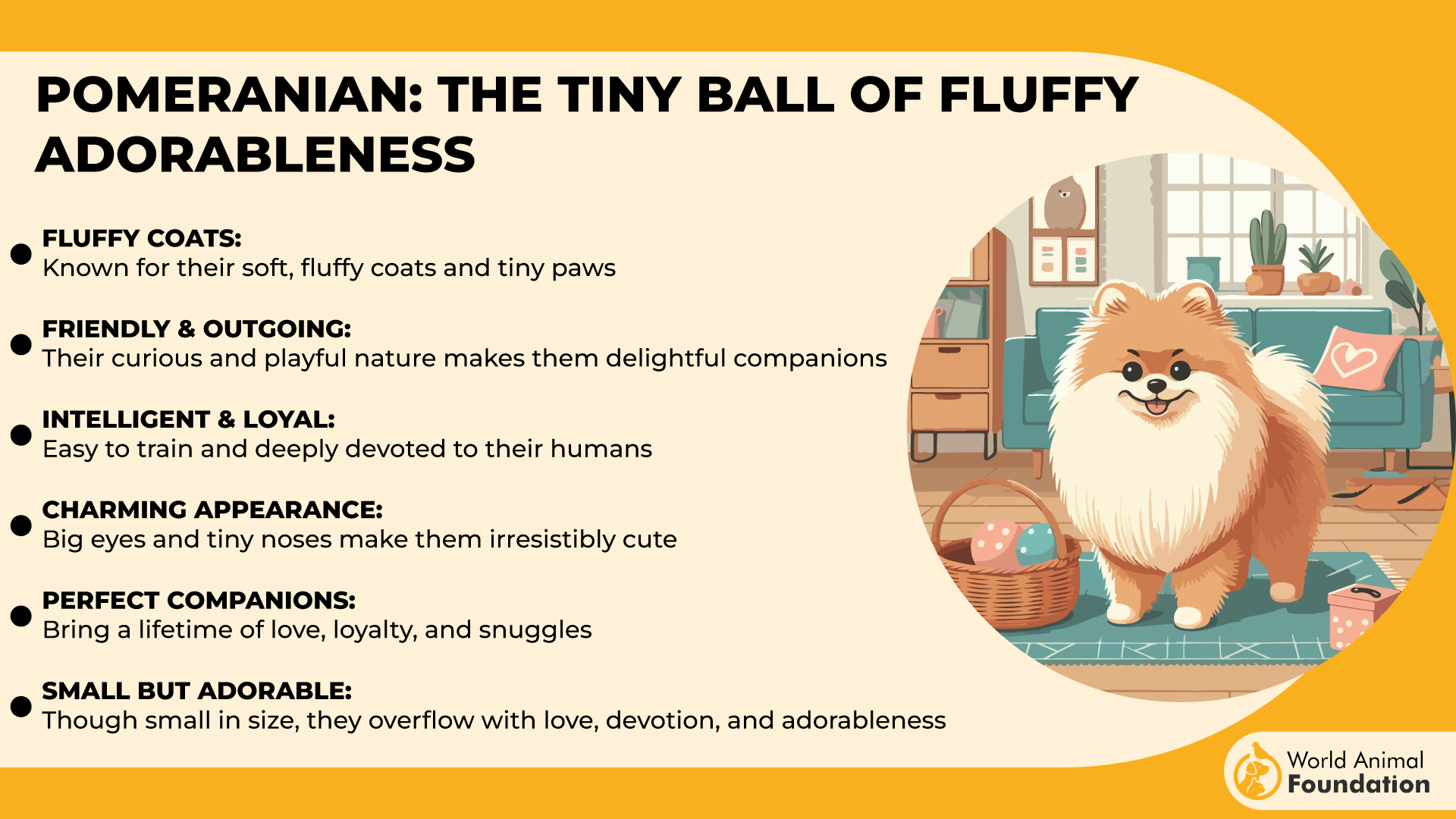In an increasingly fast-paced world, the healing power of the human-animal bond is more vital than ever. Dogs, with their unparalleled ability to provide unconditional love and companionship, have emerged as natural healers in therapeutic settings. Whether you’re seeking a gentle presence to soothe anxiety or a playful companion to lift your spirits, choosing the right breed is crucial. Delve into this guide to discover ten exceptional dog breeds renowned for their therapeutic qualities, each bringing unique traits and emotional support to those in need. Embrace the comfort and joy that these furry therapists can bring into your life.
Pet therapy has become an essential part of mental health treatment, helping people cope with emotional stress, anxiety, and other challenges through the companionship of well-trained dogs. These therapy dogs provide emotional support, comfort, and companionship in a variety of settings, from hospitals and nursing homes to private therapy sessions. The effectiveness of therapy dogs largely depends on their temperament, intelligence, and ability to bond with people.
In this article, we’ll explore the best dog breeds for pet therapy, focusing on the qualities that make each breed an exceptional companion in emotional support roles. From energetic and playful breeds to calm and gentle ones, these dogs are trained to offer unconditional love and healing to those in need.
We’ll take a closer look at 10 of the most effective therapy dog breeds, their unique traits, and how they help improve the well-being of individuals in need of support.
Best Dog Breeds for Pet Therapy
1. Golden Retriever
Golden Retrievers are the epitome of therapy dog qualities, known for their gentle and loving nature. This breed has become synonymous with therapy work, thanks to its friendly disposition and intelligence. According to PDSA, Golden Retrievers are highly trainable, making them ideal candidates for therapy dog certification. Their calming presence is effective in alleviating anxiety and offering emotional support in hospitals, schools, and nursing homes.
Golden Retrievers have an innate ability to sense when someone is upset or stressed and provide comfort through their physical presence. Their friendly demeanor and high energy make them excellent for interacting with people of all ages. Whether providing deep pressure therapy or simply offering companionship, Goldens excels at bringing a sense of calm and relief to those in need.
Beyond their therapeutic work, Golden Retrievers also form strong emotional bonds with their handlers and the individuals they assist. Their affectionate and gentle nature ensures they can create an environment of trust and support, making them one of the best therapy dog breeds available.
2. Beagle
Beagles are one of the most endearing therapy dog breeds, combining a friendly disposition with a gentle and empathetic personality. Their playful yet calm demeanor makes them great companions for individuals who need emotional support. Beagles are highly attuned to human emotions, providing comfort when they sense distress. This emotional intelligence allows them to bring joy to people in a variety of therapy settings, including hospitals, homes, and nursing homes.
Beagles are great at forming deep connections with their handlers, which helps foster a sense of security and trust in individuals who may be struggling emotionally. Their affectionate nature allows them to provide both physical and emotional comfort, alleviating feelings of loneliness or anxiety. Beagles are particularly effective as therapy dogs for children or the elderly due to their small size and gentle, playful nature.
With proper training and therapy dog certification, Beagles are highly effective at providing emotional support through their cheerful and loving personalities. Whether offering companionship or lighthearted play, Beagles are perfect therapy dogs for those in need of comfort and joy.
3. Labrador Retriever
Labrador Retrievers are widely recognized for their loyalty and affectionate nature, making them one of the best therapy dog breeds. These dogs are intelligent, highly trainable, and eager to please, making them a popular choice for therapy dog work. Labradors are equally effective in providing emotional support in quiet environments or busy therapy sessions. Their ability to bond with people makes them great companions for individuals dealing with anxiety, depression, or emotional trauma.
The energy and enthusiasm of a Labrador Retriever make them excellent at engaging with people. In addition to offering emotional support, they can provide deep pressure therapy by leaning against their handler, which helps reduce anxiety and stress. Their calm but energetic nature makes them effective in a variety of therapy settings, including hospitals, schools, and even disaster response situations.
Labrador Retrievers are known for their unwavering loyalty, forming strong bonds with those they assist. Their willingness to work alongside handlers and provide comfort through their calming presence makes them one of the most popular therapy dog breeds worldwide.
4. Shih Tzu
Shih Tzus is one of the best small dog breeds for therapy work. As per PetMD, despite their small size, they have an enormous capacity for affection and emotional support. Known for their sweet and gentle nature, Shih Tzus are great in environments where a calm and quiet presence is needed. Their friendly disposition allows them to provide comfort and companionship to individuals of all ages, especially seniors and those with limited mobility.
Shih Tzus are particularly well-suited for emotional support work because of their ability to create close, nurturing relationships with their handlers. Their playful yet calm demeanor helps create a sense of calm and reassurance for those feeling anxious or overwhelmed. Whether working in a hospital, nursing home, or therapy clinic, Shih Tzus offers companionship that is both comforting and healing.
With proper therapy dog certification, Shih Tzus can become excellent emotional support dogs, providing a sense of stability and love to those they assist. Their gentle nature and affectionate personalities ensure they form strong bonds with individuals, making them a valuable addition to any therapy team.
5. Pug
Pugs are beloved for their charming personalities and their ability to bring joy to those in need of emotional support. Their small size and comical demeanor make them great therapy dogs, especially in environments where a lighter, more playful energy is desired. Pugs are known for their affectionate nature, and they often form strong emotional bonds with those they interact with, making them excellent emotional support animals.
Pugs’ ability to comfort and uplift people is unparalleled. Their playful and silly antics can bring smiles to people in hospitals, schools, or therapy settings. At the same time, Pugs are capable of offering a calming presence, particularly when someone is feeling anxious or stressed. Their natural ability to connect with people on an emotional level ensures that they provide the right kind of support, offering companionship and relief from emotional distress.
With their playful spirit and loving nature, Pugs are one of the best small breeds for therapy work. They offer comfort through their presence and help lift spirits in even the most difficult of times, making them invaluable companions in emotional support therapy.
6. Yorkshire Terrier
Yorkshire Terriers, or Yorkies, may be small, but they have a tremendous capacity for providing emotional support. Their affectionate and loyal nature makes them ideal candidates for therapy dog work, especially in one-on-one sessions where their bond with the handler can flourish. Yorkies are particularly effective in private therapy settings, where their calm and gentle demeanor can provide comfort to individuals dealing with anxiety, stress, or depression.
Despite their small size, Yorkies are incredibly perceptive and are often able to sense when someone is in need of emotional support. They form strong bonds with their handlers, offering companionship that can help reduce feelings of loneliness and isolation. Yorkies’ playful, loving nature also makes them great for engaging with people in various therapeutic environments.
With proper training, Yorkies can become certified therapy dogs, bringing joy and comfort to individuals of all ages. Their small size, affectionate disposition, and natural empathy make them excellent emotional support dogs, capable of providing both comfort and companionship in a variety of settings.
7. Bichon Frise
Bichon Frises are known for their cheerful and friendly personalities, which make them perfect candidates for therapy dog work. These small, fluffy dogs have an innate ability to connect with people, offering both emotional support and comfort through their playful and affectionate nature. Bichon Frises are highly social dogs, and their gentle demeanor allows them to interact well with people of all ages.
Their calming presence and ability to bring joy to people make them effective therapy dogs, especially in environments like nursing homes, hospitals, or schools. Bichon Frises are particularly helpful for individuals who may be dealing with loneliness, anxiety, or depression. Their playful nature and eagerness to please ensure that they provide a positive and uplifting experience for anyone they interact with.
With proper therapy dog certification, Bichon Frises can become excellent emotional support dogs, offering companionship and comfort through their gentle, loving nature. Their ability to create strong emotional bonds makes them invaluable in animal-assisted therapy programs.
8. Pomeranian
As per VCA, Pomeranians are a small breed with a big personality, known for their lively energy and affectionate nature. These little dogs are often chosen as therapy dogs due to their ability to engage with people and offer comfort through their playful, yet calming presence. Pomeranians excel at forming strong emotional bonds with their handlers, making them great emotional support animals.
Despite their small size, Pomeranians are highly social and enjoy being the center of attention, making them great companions in therapy settings. Their cheerful and playful demeanor can help lift spirits and provide a sense of comfort to those struggling with emotional distress. Whether helping to reduce anxiety or simply offering companionship, Pomeranians are a perfect therapy dog breed for individuals of all ages.
Their affectionate nature and ability to provide emotional support make Pomeranians one of the best small therapy dog breeds. With proper training and therapy dog certification, Pomeranians are capable of providing comfort and joy to people in need of emotional support.
9. Bulldog
Bulldogs are often chosen for therapy dog work due to their calm and steady demeanor. Known for their loyalty and protective nature, Bulldogs excel at offering emotional support and comfort to individuals in need. Their relaxed temperament makes them ideal for therapy work, especially for people who require a steady presence to help alleviate anxiety or stress.
Bulldogs form strong bonds with their handlers, offering reassurance and emotional support through their gentle presence. While not as energetic as other breeds, their quiet and calm nature makes them highly effective in therapy sessions where a soothing, no-fuss companion is needed. Bulldogs’ loyalty and patience ensure they provide lasting emotional support to anyone in need.
In therapy settings, Bulldogs are perfect for offering companionship to those experiencing anxiety or loneliness. Their gentle and consistent nature makes them one of the best therapy dog breeds for people who need calm, reliable emotional support.
10. Cavalier King Charles Spaniel
Cavalier King Charles Spaniels are known for their gentle, affectionate, and calm personalities, making them excellent candidates for pet therapy. These dogs have a natural ability to bond with people and offer comfort through their loving nature. Cavalier King Charles Spaniels are particularly suited for emotional support roles in hospitals, nursing homes, and homes where they can offer companionship and alleviate stress.
Their empathetic nature allows them to sense when people need comfort and respond with affection. Cavaliers are excellent therapy dogs for individuals who need a gentle presence to ease anxiety, loneliness, or sadness. Their sweet and calm demeanor makes them an ideal choice for therapy work, as they offer both physical and emotional support in any setting.
Cavalier King Charles Spaniels thrive in therapy environments, providing both companionship and healing comfort. Their gentle nature and ability to form strong emotional bonds with those they assist make them one of the most beloved therapy dog breeds.
Conclusion
When it comes to selecting the best therapy dogs, dog owners need to remember that there is no one-size-fits-all solution. While breeds like the Golden Retriever and Labrador Retriever are among the most popular dog breeds due to their intelligence, trainability, and friendly nature, many other dogs also make excellent therapy companions. Whether large or small, energetic or calm, the most effective therapy dogs are those that possess the right temperament, personality, and bond with their handler.
Potential therapy dogs like mixed breeds or lesser-known breeds, with the right training and certification, can make exceptional emotional support dogs. The bond these dogs form with their owners and the comforting presence they offer are what truly define a great therapy dog. Whether you are considering a service dog for yourself or looking for emotional support for a loved one, the right dog can change lives, providing comfort, companionship, and healing in ways that words cannot.
As therapy dog certification continues to grow, more and more dogs are trained to offer emotional support in various settings, from hospitals and schools to private therapy sessions. The most popular dog breeds, such as the Golden Retriever, are often the go-to choices, but it’s important to remember that there can be more therapy dogs that, when matched to the right environment, can be just as effective. With proper training and certification, any dog—whether a small, intelligent dog breed or a calm, gentle giant—has the potential to provide invaluable support, demonstrating that the right dog can truly make all the difference.
In conclusion, selecting the right dog breed for pet therapy involves considering temperament, size, and energy level to match the needs of those in therapeutic environments. Breeds like the Labrador Retriever, Golden Retriever, and Cavalier King Charles Spaniel are renowned for their gentle and friendly nature, making them ideal candidates for providing comfort and emotional support. Smaller breeds such as the Poodle and Corgi also excel due to their adaptability and sociable demeanor. Ultimately, the best therapy dogs are those that bring joy, companionship, and a sense of calm, enriching the lives of the individuals they interact with.













